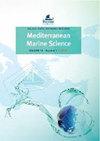Increased knowledge affects public attitude and perception towards elasmobranchs and support for conservation
IF 2.3
3区 环境科学与生态学
Q1 MARINE & FRESHWATER BIOLOGY
引用次数: 1
Abstract
The tendency of world media to villainize of sharks has likely contributed to a disparity in the distribution of research and conservation resources among threatened marine megavertebrates, with elasmobranchs losing out. Increased public knowledge on elasmobranchs can shape public attitude and foster and gain support for elasmobranch conservation. Through an online survey, this study aimed to evaluate the drivers of public knowledge and examine linkages between awareness of elasmobranchs and attitude toward their conservation. To explore the relationships and effects between the different predicting variables and public elasmobranch knowledge and attitude indices, bi- and multi-variate analysis and a partial least squares path model were used. The results indicated that the average public elasmobranch knowledge of the Cypriot population was moderate and the average public attitude towards elasmobranchs was relatively low. Marine-related activities and marine-related education were highly correlated with increased public elasmobranch knowledge and were the strongest predictors of the partial least squares path model which explained a high degree of variation in elasmobranch knowledge. Public elasmobranch knowledge was highly correlated with public attitude towards elasmobranchs. The findings of this study highlighted the importance of ocean literacy and education and provide insights into the mechanisms for developing and designing successful advocacy actions for elasmobranch conservation.知识的增加影响公众对蓝鳃类的态度和看法以及对保护的支持
世界媒体将鲨鱼丑化的倾向很可能导致了研究和保护资源在受威胁的海洋大型脊椎动物中分布不均,而板鳃纲动物则处于劣势。增加公众对蓝鳃虫的认识可以塑造公众对蓝鳃虫保护的态度,促进和获得支持。通过一项在线调查,本研究旨在评估公众知识的驱动因素,并检查对板鳃亚目的认识与保护态度之间的联系。采用双变量、多变量分析和偏最小二乘路径模型,探讨不同预测变量与公众elasmobranch知识和态度指数之间的关系和影响。结果表明,塞浦路斯人口的平均公众对蓝鳃虫的知识是中等的,公众对蓝鳃虫的平均态度相对较低。海洋相关活动和海洋相关教育与公众elasmobranch知识的增加高度相关,并且是偏最小二乘路径模型的最强预测因子,该模型解释了elasmobranch知识的高度变化。公众对elasmobranch的认知与公众对elasmobranch的态度高度相关。这项研究的结果强调了海洋素养和教育的重要性,并为制定和设计成功的宣传行动提供了深入的见解。
本文章由计算机程序翻译,如有差异,请以英文原文为准。
求助全文
约1分钟内获得全文
求助全文
来源期刊

Mediterranean Marine Science
MARINE & FRESHWATER BIOLOGY-
CiteScore
5.20
自引率
17.90%
发文量
34
审稿时长
>12 weeks
期刊介绍:
The journal Mediterranean Marine Science (MMS), published by the Hellenic Centre for Marine Research (HCMR), issues three volumes annually. The journal welcomes original research articles, short communications, New Mediterranean Biodiversity records, extended reviews, comments, and Theme sections in all fields of Oceanography, Marine Biology, Marine Conservation, Fisheries and Aquaculture in the Mediterranean area and the adjacent regions. All content is peer reviewed.
 求助内容:
求助内容: 应助结果提醒方式:
应助结果提醒方式:


